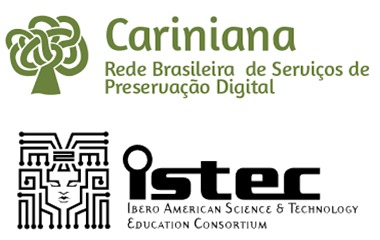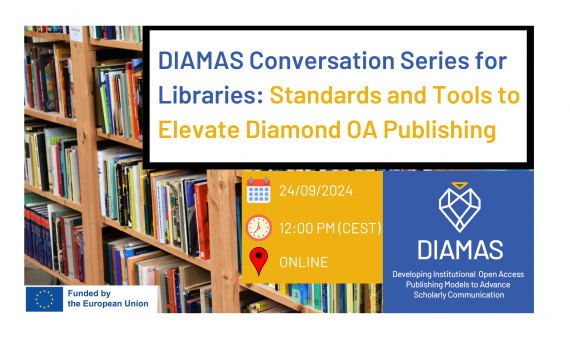|
ISSN Newsletter n° 132 - September 2024
|
|
 ISSN news |
|
|
The 49th meeting of the Directors of ISSN National Centres will be held in Tunis, Tunisia
|
The 49th ISSN Centre Directors’ Meeting is being held from October 21-24, 2024 in Tunis, Tunisia, at the kind invitation of the National Library of Tunisia.
The ISSN International Centre, located in Paris, France, has put together a dense agenda of presentations that will be attended by 60 participants from various continents.
This annual meeting of ISSN National Centre Directors is an opportunity for colleagues from ISSN Network Member Countries to exchange information on their activities, foster cooperation and participate in workshops.
Training will be provided by the ISSN International Centre team in the use of its up-to-date metadata production tool which has been upgraded regularly since its launch in June 2022. This tool is the production base underlying the ISSN portal, the global index for continuing resources (https://portal.issn.org).
A warm welcome to all delegates of the ISSN Network !
|
|
|
|
|
ISSN International Centre 2023 Activity Report
|
|
|
|
|
|
|
The ISSN International Centre Participated in the Meeting of Information Science Journals of Mercosur and the International Forum of Scientific Journal Editors Organized by IBICT (Brasilia, September 10-13, 2024)
|
The Brazilian Institute of Information in Science and Technology (IBICT) is organizing two events related to scientific publications. Gaëlle Béquet, Director of the ISSN International Centre, has been invited by the Director of IBICT to present a paper on persistent identifiers and on the article she published in the International Journal of Knowledge Engineering and Management.
The program for these conferences is available.
|
|
|
|
|
The ISSN International Centre Will Participate in the Latindex Meeting (Madrid, September 16-19, 2024)
|
Prof. Ana María Cetto, President of Latindex, has invited Gaëlle Béquet to participate in the session on persistent identifiers and digital archiving during the annual meeting of Latindex members, which will be held in Madrid this year. The other speakers in this session will be John Kunze from the California Digital Library and Silvia Pérez from the Argentine Centre for Scientific and Technical Information.
|
|
|
|
|
The ISSN International Centre Will Participate in the IPres 2024 Conference (Ghent, September 16-20, 2024)
|
Gaëlle Béquet will give a presentation on the future development of the Keepers Registry service on Wednesday, September 18, during the IPres conference. This event provides a unique opportunity to meet with representatives of archiving agencies that may participate in this service, especially in priority areas such as Africa, Latin America, and Asia. The conference program is available.
|
|
|
|
 Digital preservation |
|
|
Red Cariniana e ISTEC desarrollan actividades conjuntas vinculadas a la preservación digital en el marco de una alianza estratégica
|

El Consorcio Iberoamericano para la Educación en Ciencia y Tecnología (ISTEC) y la Red Brasileña de Servicios de Preservación Digital Cariniana vienen desarrollando conjuntamente diversas actividades orientadas a la promoción de la preservación digital.
La Red Cariniana facilita el intercambio de estudios e investigaciones y la integración de contenidos de memoria digital institucional para una preservación distribuida a largo plazo. Surge para crear una red de servicios y productos de preservación digital, asegurando acceso continuo a las colecciones. Actualmente, cuenta con 22 instituciones nacionales y 5 internacionales, además de recursos para miembros y socios académicos de ISTEC.
|
|
|
|
|
Foundations of Trust: The Alignment of POSI Principles and CLOCKSS
|

The Principles of Open Scholarly Infrastructure (POSI) provide essential guidelines for managing and sustaining open scholarly infrastructure, fostering transparency, collaboration, and long-term access to research data. CLOCKSS aligns with POSI principles, ensuring its archive is diverse, secure, and community-driven. Governance includes a stakeholder-run board, transparency in operations, and a plan for succession. Financial sustainability is ensured through a stable revenue model. Additionally, CLOCKSS uses open-source technology for long-term data preservation and follows open access policies, ensuring its mission of preserving scholarly records remains steadfast. Metadata for all the content archived by CLOCKSS is publicly discoverable on their website and in the KEEPERS registry for journals.
|
|
|
|
|
Ensuring Integrity in Scholarly Publishing: NISO RP-45-2024 and CLOCKSS Long-Term Preservation
|
The NISO RP-45-2024 set of recommendations provides guidelines for clear communication regarding retractions, removals, and expressions of concern (CREC) in research. It emphasizes transparency and standardized procedures to maintain visibility and trust. Services like CLOCKSS play a crucial role in preserving scholarly content and metadata, ensuring continued access even if original sources become unavailable. During journal ownership changes, collaboration between publishers is essential for maintaining accurate article statuses and metadata.
|
|
|
|
|
Keepers Registry – A Two-Way Street for E-journal Preservation
|
This paper gives a short overview of Keepers registry and describes two use cases for interacting with the registry: (1) using it to query data and crosscheck it against institutional holdings to prioritize holdings for in-house digital preservation (2) reporting archival holdings back to Keepers Registry to make institutional preservation activities transparent. The paper describes the use cases in the context of TIB’s digital preservation processes and outlines solutions found and challenges encountered. It concludes with an outlook to further work for TIB’s workflows as well as for an e-journal preservation registry in general.
|
|
|
|
 Libraries |
|
|
National Library of Spain Now Live with Alma and Primo
|
The National Library of Spain (BNE) has adopted the Alma digital resource management and Primo discovery platform from Ex Libris™. This upgrade replaces older systems to improve both user experience and staff efficiency, particularly in lending, cataloging, and managing serial publications. The cloud-based model enhances infrastructure management and introduces advanced features, including automated collection processes like Legal Deposit. For users, new tools include personalized consultation areas, advanced search features, and mobile readiness, providing a modernized interface for accessing resources.
The new catalog can be accessed online at: BNE catalog.
|
|
|
|
|
OCLC builds on its linked data strategy by creating uniform resource identifiers for Dewey Decimal Classification numbers
|

OCLC is unlocking the power of the Dewey Decimal Classification system to build an increasingly robust linked data infrastructure by creating uniform resource identifiers (URIs) for Dewey numbers.
As the foundation for “concept” entities, this Dewey linked data provides subject classifications to Works entities in WorldCat Entities, creating a layer of new relationships for knowledge graphs that power discovery.
|
|
|
|
 Open Science |
|
|
Global Young Academy: Building an Interconnected Scholarly Ecosystem with Persistent Identifiers (PIDs)
|
Persistent Identifiers (PIDs) are vital for research, offering unique, lasting references for people, places, and things in the scholarly ecosystem. DataCite DOIs help build a transparent and robust scholarly environment by making research outputs discoverable and properly credited. Open metadata with PIDs enhances citation accuracy, linking, and discovery, ensuring proper recognition for researchers and institutions. DataCite’s efforts focus on global engagement and building a community to make research more accessible and impactful.
|
|
|
|
|
New tool detects fake, AI-produced scientific articles
|
Ahmed Abdeen Hamed, a researcher at Binghamton University, developed xFakeSci, an algorithm that detects 94% of AI-generated fake scientific papers, especially in biomedical fields. Collaborating with Xindong Wu, Hamed compared 50 AI-generated articles on Alzheimer’s, cancer, and depression with real ones, finding fewer bigrams (common word pairs) and more interconnected language in fake papers. He highlights that AI like ChatGPT focuses on convincing arguments, while real science emphasizes honest reporting. Despite its success, xFakeSci still misses 6% of fakes, prompting further research to improve detection across various fields.
|
|
|
|
 Open Access |
|
|
EIFL landscape study of no-fee open access publishing in Africa
|

EIFL’s landscape study explores open access (OA) journals in Africa that don’t charge fees (Diamond OA), based on survey data from 199 journals, 21 platforms, and 25 country reports. It examines funding, sustainability, institutional support, incentives, and collaboration among these journals. The study is part of the three-year ‘Collaboration for sustainable open access publishing in Africa’ project (Nov 2023 – Oct 2026), led by EIFL, AJOL (African Journals Online), and WACREN (the West and Central African Research and Education Network) with Wellcome’s support.
See the online version of the report.
|
|
|
|
|
Collaboration entre Research4Life, le DOAJ et l’ASSAf : une réponse aux besoins des chercheurs francophones en Afrique
|

En 2023, le DOAJ a été invité par Research4Life, en collaboration avec l’ASSAf, à lancer une série de webinaires en français pour chercheurs de pays à faible revenu, comme la Tanzanie, le Bhoutan et le Ghana. En 2024, des webinaires en français ont été ajoutés, touchant des pays francophones comme le Bénin et le Sénégal. Les formations ont couvert divers sujets, allant de la transparence dans l’édition scientifique aux pratiques prédatrices. Les retours des participants et la collaboration avec des bibliothécaires locaux montrent l’importance d’adapter le contenu aux besoins spécifiques et de renforcer les liens régionaux.
|
|
|
|
|
Springer Nature’s open access strategy continues to drive impact and equity
|
Springer Nature has announced that 44% of its published articles are now open access (OA), marking a significant milestone in the publisher’s ongoing efforts to enhance the accessibility and impact of scientific research. The 2023 OA report underscores the success of Springer Nature’s approach to open access, highlighting the increased usage, visibility, and citations of OA articles, alongside initiatives aimed at supporting equity in OA publishing.
The full report can be accessed here, alongside the previous report in 2023 and the fully OA report from 2022.
|
|
|
|
 Scholarly Communication |
|
|
Coverage and metadata availability of African publications in OpenAlex: A comparative analysis
|

This paper analyzes OpenAlex‘s coverage and metadata availability for African-based publications compared to Scopus, Web of Science (WoS), and African Journals Online (AJOL). OpenAlex is noted for its broader inclusion of the humanities, non-English languages, and research from the Global South, promoting diversity and inclusivity in science. The findings reveal that OpenAlex offers the most extensive coverage of African research publications. While OpenAlex excels in providing publication and author information, it lags behind in affiliations, references, and funder data, especially for publications not indexed in Scopus or WoS.
|
|
|
|
|
High-Quality Metadata: A Collective Responsibility and Opportunity
|
The current model for improving DOI metadata is limited and creates inefficiencies, as changes are often siloed or left to the original creators. At the FORCE11 conference, the University of California Curation Center (UC3) initiated discussions on enhancing DOI metadata collaboratively, using open and scalable systems to foster better research data management. The community must build consensus, empower users to validate and improve records, and ensure that new systems are open, reproducible, and scalable. Crossref and DataCite’s frameworks can guide these efforts toward creating a more connected, comprehensive research information system.
|
|
|
|
|
La IA ha transformado radicalmente la búsqueda de literatura académica
|
Los asistentes de búsqueda de literatura basados en inteligencia artificial (IA) están revolucionando la manera en que se accede a la información académica, ayudando a sistematizar y ahorrar tiempo, según expertos de la UNAM. Estas herramientas utilizan bases de datos académicas confiables como Web of Science y Scopus. Aunque facilitan el análisis de grandes cantidades de datos y personalizan las consultas según el historial del usuario, también plantean desafíos éticos y problemas de transparencia. Se recomienda combinar la eficiencia de la tecnología con la capacidad humana de reflexionar acerca de lo que nos provee la IA.
|
|
|
|
 Standards |
|
|
The myth of perfect metadata matching
|
Metadata matching is complex and cannot be 100% accurate due to varied and messy input data. The challenges include dealing with different formats and incomplete information, making perfect matching unrealistic. Adjusting strategies to address specific errors can reduce overall performance. Striking a balance between precision and recall is crucial, accepting some imperfection as part of the process. Despite imperfections, automated large-scale matching can be beneficial. Proper strategies and error-checking mechanisms can minimize negative effects while improving metadata. Accurately assessing matching results is challenging but possible with scientific tools.
|
|
|
|
 Events |
|
|
DIAMAS Conversation: Standards and Tools to Elevate Diamond OA Publishing (24 September 2024, 12 PM – 1.30 PM CEST, online)
|

The meeting continues the DIAMAS Conversation Series for libraries and will focus on the standards and tools crafted to enhance the quality, efficiency and sustainability of Diamond OA publishing. We will introduce the Diamond Open Access Standard (DOAS), a comprehensive quality framework for Diamond OA publishers, and demonstrate the DOAS self-assessment tool, which enables publishers to evaluate their compliance with this standard.
Register now to be part of this conversation and help us shape the future of Diamond Open Access.
|
|
|
|
|
El CAICYT convoca a la I Jornada de Actualización para Editores de Revistas Científicas (7 de octubre de 2024, híbrido)
|

El CAICYT anuncia la realización de la I Jornada de Actualización destinada a Editoras y Editores de Revistas Científicas Argentinas. Bajo el lema Fortaleciendo la Calidad de las Revistas Científicas Nacionales, el evento se llevará en formato híbrido el lunes 7 de octubre de 2024.
Esta iniciativa busca contribuir al aseguramiento de la calidad de las publicaciones científicas y académicas argentinas. El foco estará puesto en la difusión de los servicios del Centro: ISSN, Latindex, Núcleo Básico de Revistas, SciELO y ARK-CAICYT.
|
|
|
|
|